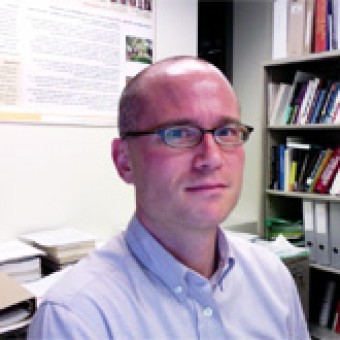Plausibility Project Workshop
Program Areas – Futures
 Project Duration
Project Duration
November 19-20, 2009
Project Leaders
- Cynthia Selin, Assistant Research Professor, CNS-ASU and CSPO
- Arnim Wiek, Assistant Professor, School of Sustainability
About the project
The Plausibility Project seeks to better understand the meaning and significance of plausibility through questioning the ways individuals and communities know, explore, assess and shape futures across time, cultures and professional practices.
The Consortium for Science, Policy and Outcomes and Center for Nanotechnology in Society at Arizona State University, with the Institute for Science, Innovation and Society at University of Oxford, gathered world-renowned scholars and practitioners at this workshop at Arizona State University to think about the nature and role of plausibility. The workshop created space for reflection about the ways and means of the future tense. This intimate gathering focused on developing pertinent research questions and collaborations focused on plausibility.
Public Seminars: Four public seminars were presented in conjunction with the Plausibility Project.
On plausibility
While the importance of thinking longer term (Crow 2009), building sustainable systems (Komiyama & Takeuchi 2006) and taking responsibility for futures (Adam 2007) in times of uncertainty has been established, what this means for futures-oriented research and practice is not entirely clear. The production and consumption of anticipatory knowledge involves imagination and speculation, the analytic treatment of expectations, the creation of visions and predictive models – a whole range of practices, methods and tools. However, there is little systematic scholarship that addresses how such knowledge is used in policy, industry and academia and, more importantly, little said about the quality of such knowledge. Plausibility has emerged as a crucial yet under-examined concept.
Anticipatory knowledge trespasses from fact to something else. In lieu of evidence and retrospective empirical studies, plausibility becomes a central concept to address issues surrounding the rigor and relevance of anticipatory knowledge. In the futures research community, plausibility is juxtaposed against such concepts as possibility (a range of options without judgment), probability (quantifying uncertainties) and desirability (preferred options). We may situate plausibility as a reasoned verdict – yet one that is often made with little reflection on norms, power or philosophical underpinnings.
Outcomes
The anticipated outcomes of the workshop were threefold:
- Identification of the ‘state of the art’ (concepts, empirical studies) regarding plausibility;
- Accounting for research and knowledge gaps surrounding plausibility; and
- Development of a coordinated research agenda with preliminary indications of who would be interested in addressing which gap.
Partners
The impetus for this project came from work conducted at the Center for Nanotechnology in Society at ASU. Fruitful discussions at the Oxford Futures Forum concretized the need for further explorations of the topic. This project occurs in cooperation with the Institute for Science, Innovation and Society at University of Oxford, which is a member of the Consortium for Science, Policy and Outcomes at ASU.
Further Reading
This bibliography presents a cursory collection of the scholarly literature relevant to plausibility. By no means is it exhaustive, but rather it begins to render the landscape of disciplinary and professional perspectives on the topic. Also see references suggested and annotated by workshop participants [here], which inspire fruitful thinking about plausibility, theoretically and methodologically.
Meet the Project Team
Principal Investigators

